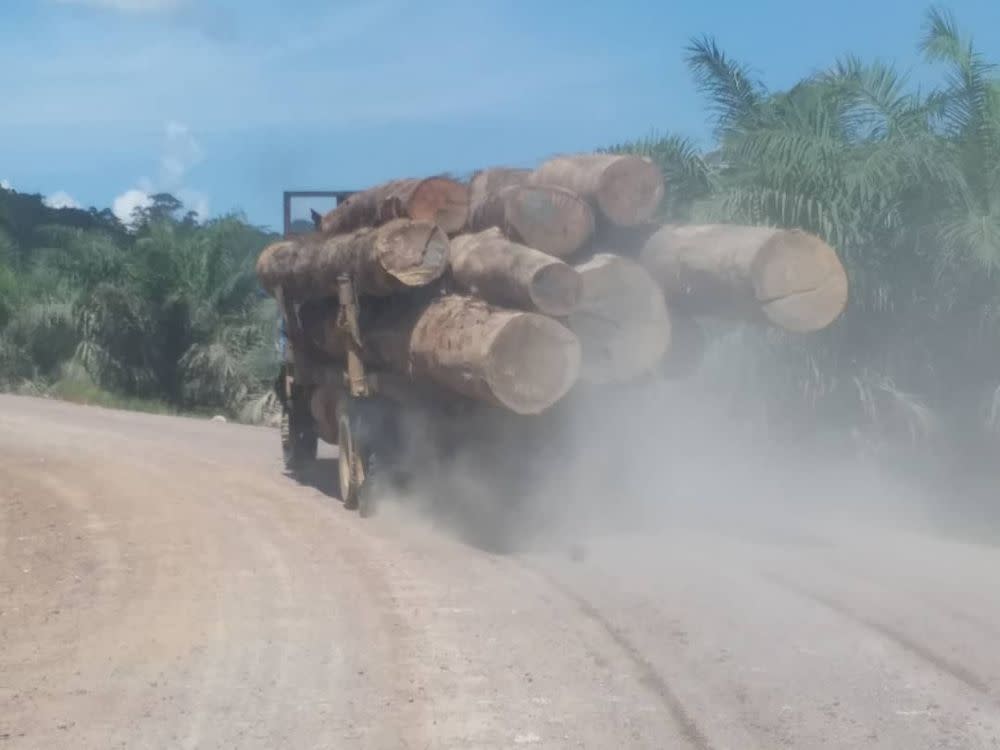What Sabah CM needs to do to revive state economy, according to ex-CM

KOTA KINABALU, May 20 — The Sabah government needs to refocus their direction from timber processing into the services sector if they want to revive the state economy and provide jobs, said a former chief minister Datuk Seri Yong Teck Lee.
The Sabah Progressive Party president said that chief minister Datuk Seri Mohd Shafie Apdal’s current approach to ban the export of timber logs to keep supply for a domestic furniture industry was not a viable option for the state which is not prepared for the infrastructure involved in such an industry.
“We have explored these options and approaches since I was minister of Industries in 1990. Wood supply is just one of many components needed for a successful wood processing industry.
“Other things are crucial — ports that can bring down freight charges, affordable utilities like electricity, qualified manpower, investors for design and quality control, and a marketing plan that can bring the goods to international markets. And to bring it to the European market, you need to be in compliance of all kinds of environmental standards.
“The ban was immediate, but everything is not in place yet for the industry or to contribute to the state’s economy. It takes years to prepare for it, so meanwhile we are depriving the government of hundreds of millions of ringgit in timber royalties,” said Yong who was commenting on the state economic policies in a recent interview with members of the media.
He said that the concept of a wood processing industry has been mooted by many relevant agencies over the years – the Malaysian Investment Development Authority (MIDA), the Industrial Development Ministries, Sabah Forestry Department, Yayasan Sabah, Sabah Timber Industries Association and many of those in the timber industry – and the consensus was that it was not viable.
The state has set a target to increase its revenue from the manufacturing sector from 7.3 per cent of the state’s total gross domestic product (GDP) to 35 per cent, or RM60 billion, by 2030.
Part of the proactive approaches to achieve its target include banning timber exports and boosting the development of downstream industries in order to make Sabah an industrialised state that provides more jobs to the people.
Shafie announce the timber log ban within two weeks of his taking over the state government last year as a way to keep timber supply within the state for a domestic furniture industry and also to break the monopoly of Sabah’s timber cartel.
However, the decision has been a controversial one – some hail it as a good move in the long run to tackle domestic supply while others have complained of the lack of planning in such a spontaneous move has resulted in huge losses, including to the nation’s foreign exchange and put off investors.
A local company — Boonrich Sdn Bhd — has in March filed a suit against the state government for RM91.6 million over the log export ban claiming it suffered huge losses as a result of the ban as it has been unable to sell logs from its own plantations to ready foreign buyers from India and Dubai.
Yong, who was chief minister from 1996 to 1998 during the two year rotation system, said he believed that manufacturing is also not the answer to the state’s unemployment woes, which is one of the other cruxes of Shafie’s administration.
The current sawdust and plywood industry, he said, mostly employed non-Sabahans so it would stand to reason that Sabahans are not attracted to the manufacturing industry.
Instead, there should be more emphasis on the service industry, particularly the tourism, hospitality and resources management sector.
The services sector is the largest contributor to Sabah’s GDP. In 2017, the sector accounted for 39.9 per cent of the state’s revenue, followed by the mining and quarrying sector (31.3 per cent), agriculture (18.7 per cent), while the lowest contributor was the manufacturing and industrial sector at only 7.3 per cent.
“Locals, by nature and character, naturally prefer this sector. Its a quality job, with quality pay, and prospects are good. Sabahans like this line and as an economic plan, this is where the future is,” said Yong.
He said the state could capitalise on the “free resources” like Sabah’s famed coastal sunsets which locals tend to take for granted, and other natural resources.
Others like wildlife, forestry and eco tourism were attractions that high value tourists from Europe and Western countries wanted.
“Hospitality — hotels, restaurants, food and beverage outlets, local fruits, seafood, these are by and large environmentally-friendly compared to timber and people like it,” he said.
Yong explained that the sudden direction towards wood processing can be environmentally damaging because foreign investors in the furniture industry would require a guarantee of wood supply which would mean more logging.
“There is also a high demand on energy consumption which could mean more pollution,” he said.
Related Articles India’s acrimonious election comes to an end Bursa Malaysia poised to gain further to test 1,620 level New state Cabinet appointees pledge their all for Sabahans



